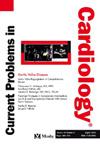Integrative approaches to atrial fibrillation prevention and management: Leveraging gut health for improved cardiovascular outcomes in the aging population
IF 3
3区 医学
Q2 CARDIAC & CARDIOVASCULAR SYSTEMS
引用次数: 0
Abstract
Atrial fibrillation (AF) is a prevalent clinical arrhythmia associated with a high incidence and severe complications such as cerebral embolism and heart failure. While the etiology and pathogenesis of AF involve numerous factors, recent research emphasizes the significant role of intestinal microbiota imbalance in the emergence and progression of AF, particularly among older adults. This review investigates the mechanisms by which intestinal flora and their metabolites contribute to the onset of AF in the elderly, highlighting novel interactions between gut health and cardiac function. Current literature often overlooks these critical connections, indicating a substantial research gap in understanding how dysbiosis may exacerbate AF and hinder recovery. Furthermore, exploring the bidirectional relationship between the gut microbiome and systemic inflammation in the context of AF provides a unique perspective that has yet to be thoroughly investigated. Future research should focus on longitudinal studies assessing gut microbiota composition and function in AF patients and consider probiotics or prebiotics as potential adjunctive therapies for mitigating AF. This comprehensive approach may pave the way for innovative treatments integrating cardiology with gastroenterology, enhancing patient outcomes through a holistic understanding of health.
房颤预防和管理的综合方法:利用肠道健康改善老年人群心血管结局
心房颤动(AF)是一种常见的临床心律失常,发病率高,并发症严重,如脑栓塞和心力衰竭。虽然房颤的病因和发病机制涉及许多因素,但最近的研究强调了肠道微生物群失衡在房颤的发生和进展中的重要作用,特别是在老年人中。这篇综述探讨了肠道菌群及其代谢物促进老年人房颤发病的机制,强调了肠道健康和心功能之间的新相互作用。目前的文献往往忽略了这些关键的联系,表明在理解生态失调如何加剧房颤并阻碍康复方面存在实质性的研究空白。此外,在房颤的背景下,探索肠道微生物群和全身性炎症之间的双向关系提供了一个独特的视角,但尚未得到彻底的研究。未来的研究应侧重于评估房颤患者肠道微生物群组成和功能的纵向研究,并考虑将益生菌或益生元作为缓解房颤的潜在辅助疗法。这种综合方法可能为将心脏病学与胃肠病学相结合的创新治疗铺平道路,通过全面了解健康状况来提高患者的预后。
本文章由计算机程序翻译,如有差异,请以英文原文为准。
求助全文
约1分钟内获得全文
求助全文
来源期刊

Current Problems in Cardiology
医学-心血管系统
CiteScore
4.80
自引率
2.40%
发文量
392
审稿时长
6 days
期刊介绍:
Under the editorial leadership of noted cardiologist Dr. Hector O. Ventura, Current Problems in Cardiology provides focused, comprehensive coverage of important clinical topics in cardiology. Each monthly issues, addresses a selected clinical problem or condition, including pathophysiology, invasive and noninvasive diagnosis, drug therapy, surgical management, and rehabilitation; or explores the clinical applications of a diagnostic modality or a particular category of drugs. Critical commentary from the distinguished editorial board accompanies each monograph, providing readers with additional insights. An extensive bibliography in each issue saves hours of library research.
 求助内容:
求助内容: 应助结果提醒方式:
应助结果提醒方式:


